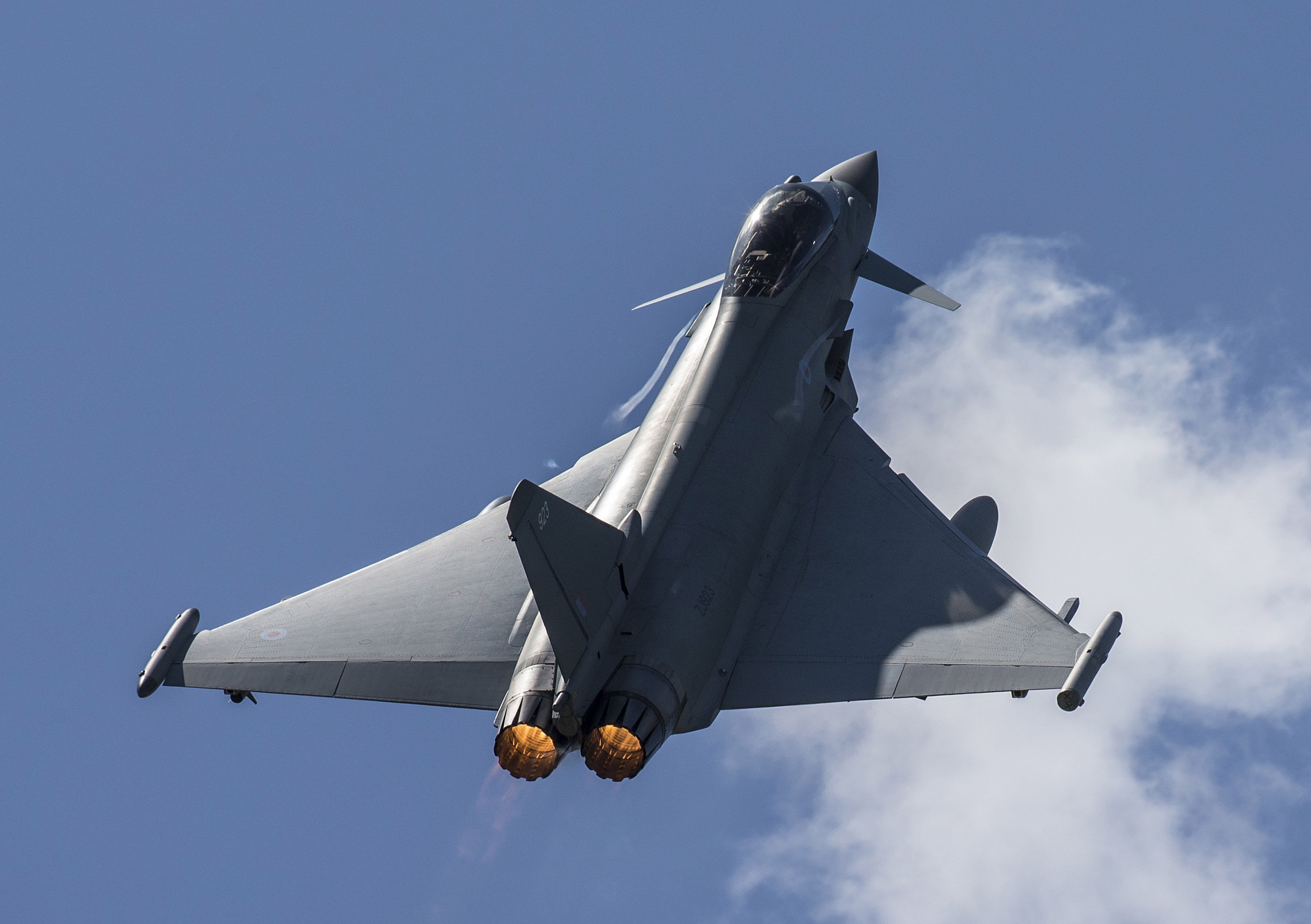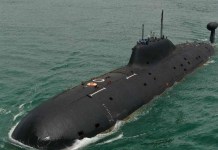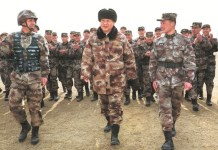In the last 20 days, NATO jets have scrambled four times from a Romanian airbase to intercept Russian fighters heading into NATO territory along the Black Sea coast after taking off from Crimea.
Washington Keen To Arm Turkey With ‘Powerful Fighter Jets’ That Will Serve Both US & NATO Interests In Europe
The Russian jets were returned without trouble each time, but the flights pose a serious challenge to the military coalition, Airforce Magazine reported.
This comes as NATO members deploying more resources to strengthen their air defense. For instance, the United Kingdom stated on April 8 that two more RAF Typhoon jets joined the four already stationed in Romania.
The Typhoon fighters and Royal Air Force personnel have arrived in Romania to undertake the NATO Air Policing role in the Black Sea region. NATO’s Air Policing mission is known in Britain as Operation Biloxi.
The NATO air policing commanders and the Combined Air Operations Center in Torrejon, Spain, were not entirely sure of the Russian practice’s purpose. However, it highlighted the mission’s relevance in protecting the airspace over what defense officials describe as the NATO front line in Russia’s battle with Ukraine.

“You have more Russian aircraft flying around the Black Sea,” Spanish Lt. Gen. Fernando De La Cruz Caravaca, commander of the NATO Combined Air Operations Center, told Air Force Magazine.
“We react to them anytime any Russian aircraft flies in the Black Sea,” he added. “We need to be sure that we are there, ready, in front of them, just in case.”
NATO Bolstering Air Policing
A ceremony at Mihail Kogalniceanu (MK) Air Base, Romania marked the handover of NATO reinforced air policing duties in Romania from Italy to the United Kingdom, with the CAOC commander in attendance among Romanian, American, and other NATO officials.
A total of six Eurofighter Typhoons from the United Kingdom joined eight Italian Typhoons, Romanian MiG-21 Lancers and F-16s, and six American F-16s from the 480th Fighter Squadron at Spangdahlem Air Base, Germany, in training for the mission.
The event included a “tango scramble,” a NATO-exclusive maneuver in which four combat planes are airborne in formation within just 15 minutes. The planes flew in a diamond formation overhead, with the UK Typhoon in front, an Italian Eurofighter at back, and a Romanian F-16 on the wings, flanked by a US F-16 from nearby Fetesti Air Base.

The exercise also serves as a symbol of NATO’s readiness to protect the skies with a wide variety of platforms of various sizes and capabilities, according to 480th Fighter Squadron detachment commander Lt. Col. William Parks of the United States Air Force.
“We’re executing 24/7 CAPs with all the NATO partners across the entire eastern front,” he told Air Force Magazine on the sidelines of the event. “It gives a chance for us to show that we are integrated completely with our NATO partners, and that includes in tight formations,” he added.
Since Russia’s invasion of Ukraine began, many European countries have increased their defense spending, and the United States is aiding NATO in strengthening its defenses. On Friday, A spokesperson for the Vermont Air National Guard confirmed that members will be deployed to Europe in early May.
The Vermont Air National Guard is the home of the 158th Fighter Wing and is the first Air National Guard unit to base the F-35A Lightning II.

The Guard troops will be assigned to the US European Command and will help “enhance NATO’s collective defense” as well as the alliance’s “air policing mission” in Europe, according to Maj. J. Scott Detweiler.
Detweiler, on the other hand, said the May deployment is unrelated to the Ukraine conflict. Rather, he stated that the mission is part of a series of routine deployments in Europe that continue the United States’ commitment to training and operating alongside its partners in the region.
Italian and British Air Force officers believe that Moscow is keeping an eye on what NATO is doing in its airspace along the Black Sea coast.
“Our Air Force is on NATO’s front line,” said UK Air Chief Marshal Sir Michael Wigston. “We are the first line of defense,” he added. “And I do not doubt that Russia is watching very carefully from Norway down into the Mediterranean.”
- Contact the author at ashishmichel@gmail.com
- Follow EurAsian Times on Google News




